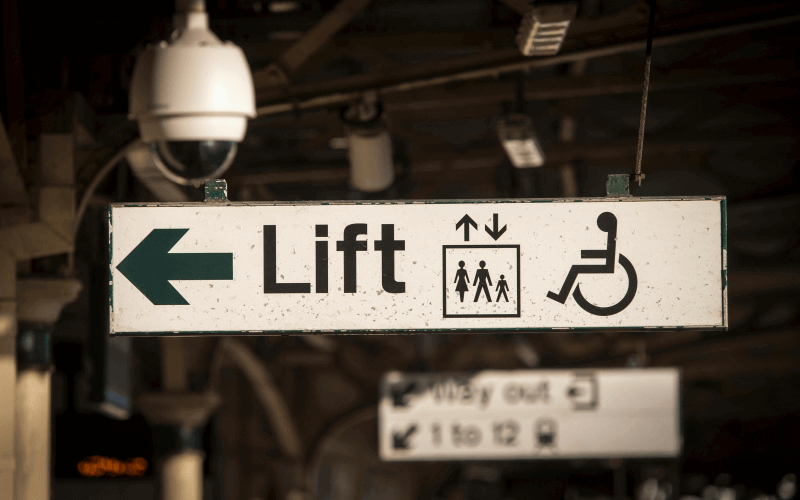The Government will investigate claims that rail companies are using “mystery shoppers” posing as disabled people as a way of providing data about the accessibility of their services.
One activist said the concerns could have a “huge impact” on the rail industry.
Both the Department for Transport (DfT) and the rail regulator confirmed this week that data from such “role-playing” mystery shoppers should not be used in information passed on to the government by train companies.
The Disability News Service (DNS) revealed last week that a market research firm used by several railway companies had been using “role-playing” passengers posing as disabled people to carry out mystery shopping research into services at railway stations and on trains.
At least one rail company that uses the services of Mystery Shoppers Ltd (MSL) confirmed it was unaware of the role-playing and that MSL data is regularly passed on to the Department for Transport.
Disability campaigners warned last week that passengers taking part in role-playing exercises may have provided inaccurate and overly positive information about the rail system’s accessibility.
The Department for Transport announced yesterday (Wednesday) that it would consult with rail companies about whether data provided by MSL and other contractors complied with “audit requirements”.
The Department for Transport has yet to say whether it knew that rail companies were using role-playing mystery shoppers to test the accessibility of their services before it was alerted to DNS’s claims, and that this data may have been passed on to the Government.
It is also not yet clear whether the data provided by MSL to training companies affected the DfT’s assessment of their performance, or any bonuses they might have received.
The Department for Transport said this week that rail contracts will require a quarter of customer service audits to be carried out by mystery shoppers with a “genuine disability”.
These results are then used to calculate scores for key indicators of each company’s performance.
It was confirmed that data from role-playing mystery shoppers should not be included in these audits.
But the Department for Transport said it was the responsibility of rail operators to ensure that the companies they used to provide this data complied with audit requirements.
Rail regulator the Office of Rail and Road (ORR) confirmed that mystery shopping about disabled experiences “should be undertaken by disabled passengers themselves”.
An ORR spokesman said in a statement: “We thank you for passing this information on to us and the railway company.
“It reminds the railroads that they are accountable for the performance of their contractors.
“We expect operators to continually evaluate their performance in supporting passengers with disabilities and consider ways to improve.
“To ensure that mystery shopping appropriately reflects the experiences of people with disabilities, it should be conducted by disabled passengers themselves.”
He added: “We support the use of mystery shopping as a way for operators to understand the experiences of passengers with disabilities, but do not mandate it.”
“I was not aware that train operators were using mystery shopping companies that allow non-disabled people to role-play disabled people.”
Emily Yates, British Commuters AssociationHe said yesterday: “If operators are found to have breached their contracts, this case could have major implications for the rail industry.”
“Rail operators appear to have used this low-quality, fabricated data to meet audit requirements, which may call into question the Department for Transport’s entire contract performance regime.”
“We need to know the full extent and scale of the problem, and especially how it has influenced policy decisions.”
“Meanwhile, the government continues its obsessive secrecy on rail, ticketing and staffing reforms, and there is still no sign of two consultations promised since 2021 – the National Rail Accessibility Strategy and the ORR Subsidised Travel Policy Consultation.”
Those who carry out MSL mystery shopping at stations and on trains are paid a small fee and travel expenses.
The “challenges”, which are advertised on MSL’s website and in emails to freelance workers, require passengers to test how well the rail company performs in providing support to disabled people, but many of the challenges can be carried out by any passenger “able to role-play needing assistance”.
One of the challenges for 2023 involves a mission to visit a station in Sussex: [sic] In shops, real needs or role-playing can include things like visual impairments, hearing impairments or physical disabilities such as the use of a wheelchair or mobility aid.
Sarah Leadbetter, national campaigns manager for the British Federation of Blind People, said last week that the use of mystery shoppers, who role-play disabled people, was “terrible”, adding: “They don’t have the proper lived experience. They can’t put themselves in our shoes. They won’t know anything.”
“Until you’re actually disabled, you don’t realise the nuances and the different things that can be really dangerous,” Sam Jennings, a disability activist and the owner of a new website called #DisabledByTheRailway which highlights the access barriers faced by disabled rail users, said last week.
“You don’t have that knowledge. It’s ridiculous. What they’re doing is dishonest and they’re making a fool of it.”
MSL admitted last week that it had paid mystery shoppers to act as passengers with disabilities and announced it would carry out an internal investigation into its “communications and practices”.
Photo by ORR
Editor’s note:
Please consider making a voluntary donation to support DNS’ work and enable us to continue producing independent, carefully researched news stories focusing on the lives and rights of disability people and disability-led organisations.
If you cannot afford to donate, please do not donate. Please note that DNS is not a charity. Since its launch in April 2009, DNS has been run and owned by disabled journalist John Pring.
If you can help support the DNS effort, we’d really appreciate it.

